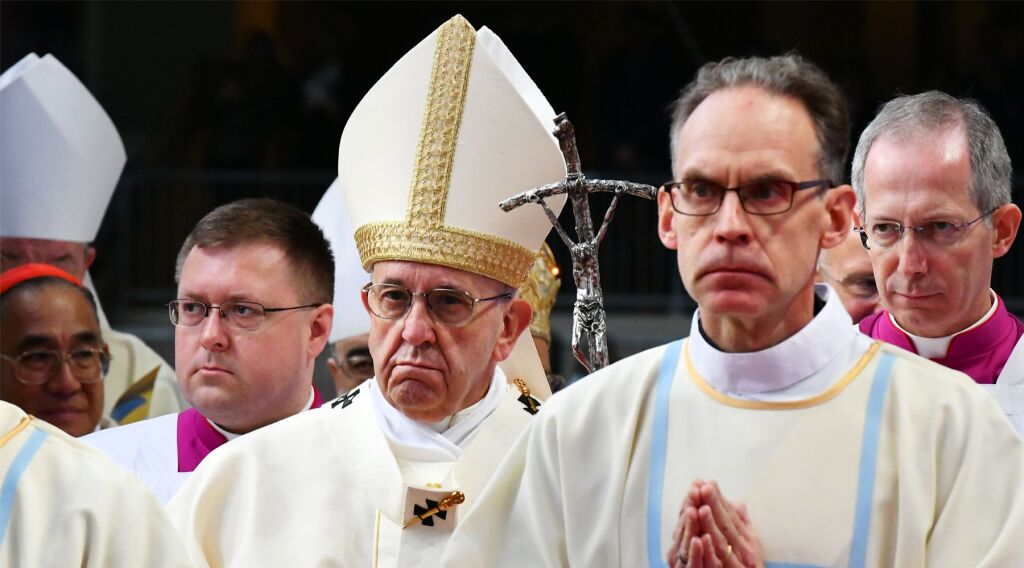
Pope Francis’s Lutheran Reconciliation on Reformation Anniversary
On October 31, 499 years ago, Martin Luther nailed (or perhaps glued) what was to be the world’s most famous set of complaints to the door of a German church. On October 31 this year, Pope Francis gave a Reformation anniversary speech in Lund, Sweden, about the great steps taken toward reconciliation between the Catholics and Lutherans.
“We have the opportunity to mend a critical moment of our history by moving beyond the controversies and disagreements that have often prevented us from understanding one another,” Francis said.
Francis thanked God that “different ecclesial communities” have “refused to be resigned to division” and then thanked the Reformation for giving “greater centrality to sacred Scripture in the Church’s life.” He told Catholics and Lutherans alike that they could not be “resigned to the division and distance” that have separated them.
Most mainstream news sources reported that Pope Francis’ message was received with enthusiasm. “This is a historic event,” said one Catholic who was interviewed by the New York Times. “It is wonderful that we can work together instead of thinking about all of the differences that separate us.”
Austen Ivereigh, a biographer who called Francis the “restless reforming” pope, thinks there are some special qualities in Francis that no others have had. Francis is one “who sees the need for the Church to be always in need of renewal,” Ivereigh wrote.
Francis also has a “specific abhorrence of the kind of corruption Luther denounced.” The latest pope has been big on denouncing what he calls “spiritual worldliness”, and has been outspoken on previous mistakes the Catholic Church has made.
With all this common ground, the Pope’s speech in Sweden—a place where Lutherans have historically persecuted Catholics—was a ripe opportunity to turn the fifty-some years of Catholic-Lutheran dialogue into real action.
World Religion News reported that the “Vatican does not seem interested in continuing the hostilities anymore, despite the archaic views some traditionalists still hold.”
The Trumpet and its predecessor, the Plain Truth, have been tracking this trend for decades. You can read a survey of these changes and predictions in “Returning to the Fold” from our booklet He Was Right. Ever since the Vatican ii council of the early 1960s started the official process of gathering in the “sheep that have strayed,” there has been steady progress.
In 1963, in the midst of the Second Vatican Council, the Plain Truth reported:
Today, the time is ripe—according to official Catholic views—for making the final effort to unite the church bodies of the Christian world. The mighty problem of achieving unity is twofold. First, it involves reconciliation of the Orthodox Schism that officially commenced in 1054 and divided the churches in the East—Greece, Russia, the Balkans and the Near East—from Rome. Second, it involves restoration to the Roman communion all Protestantism, which developed from 1517 onward.
As Trumpet writer Richard Palmer wrote, “the first problem—the ‘reconciliation of the Orthodox Schism’—is nearly resolved.” The second part of the problem is what Pope Francis has set his sights on, and the world’s most popular leader seems like just the smooth-talking man for the job.
